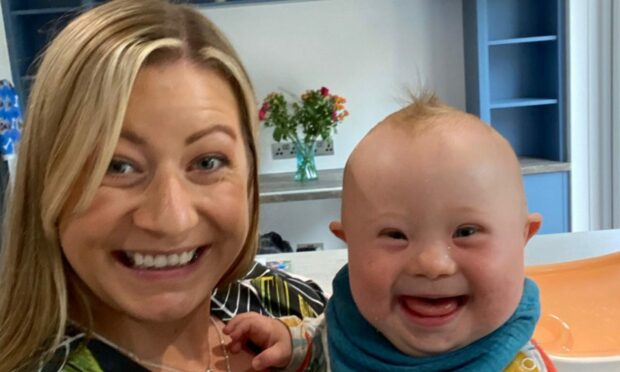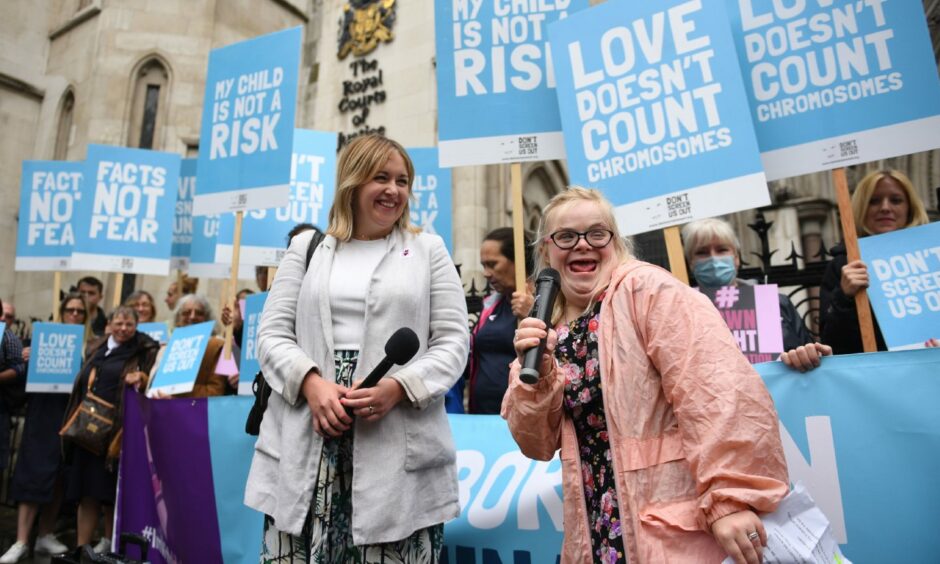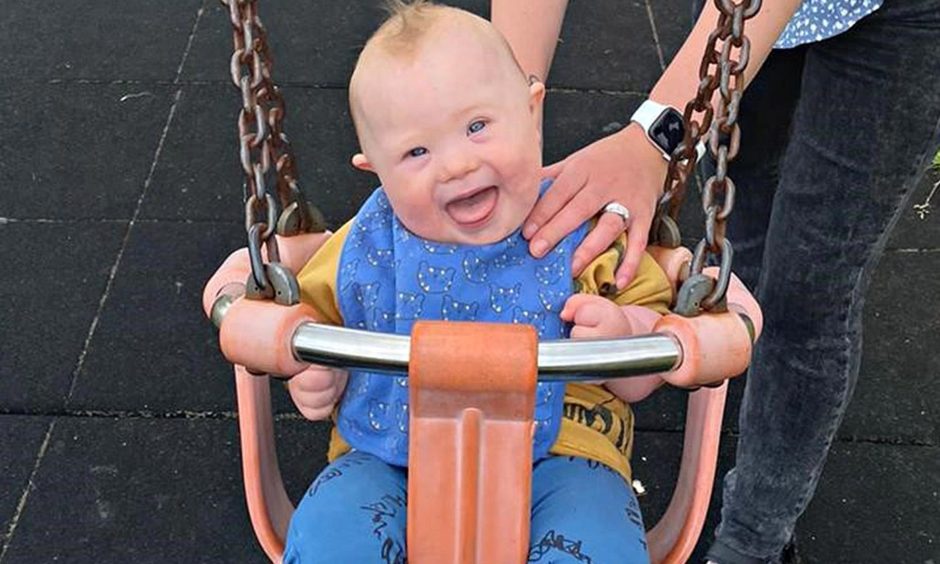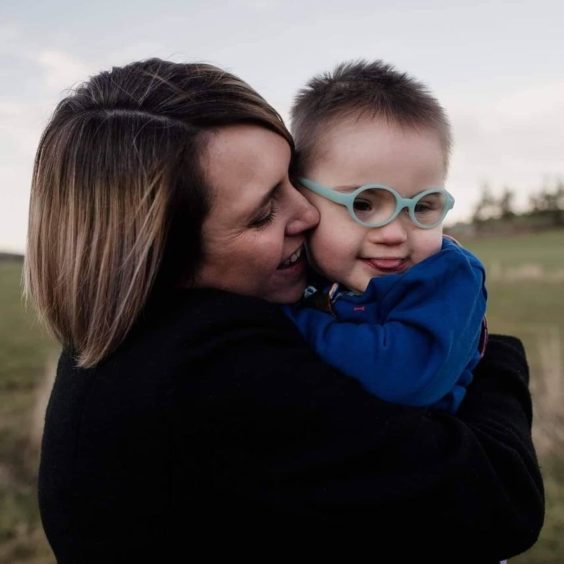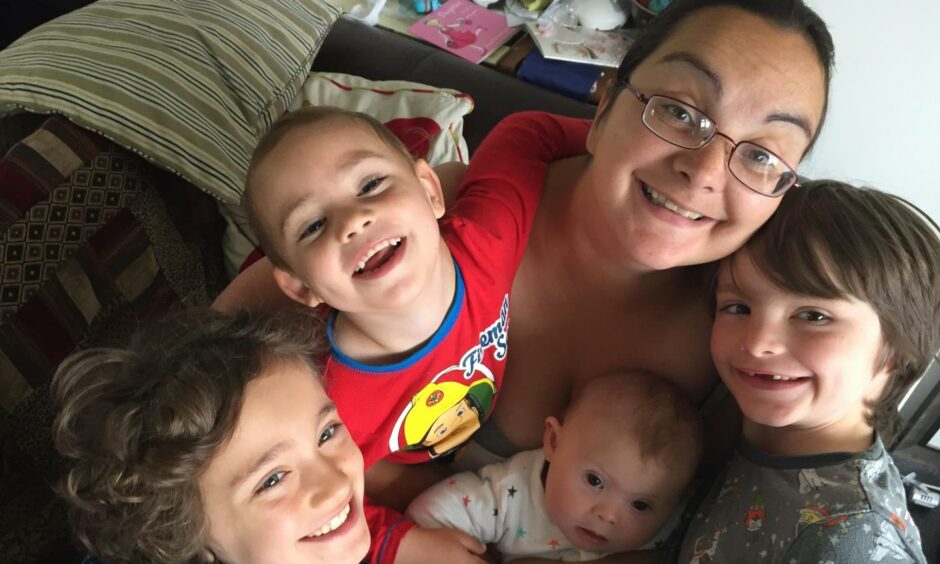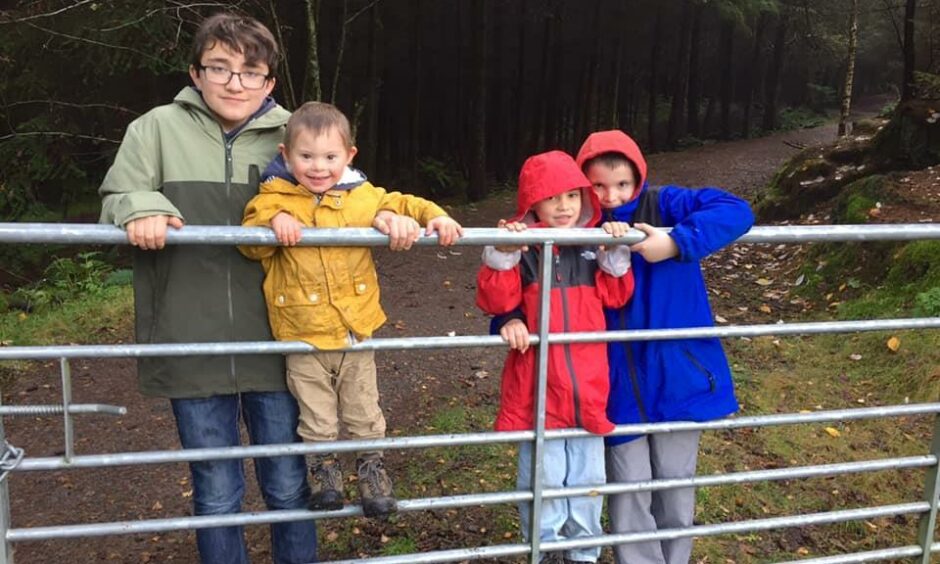A group of north-east mums have thrown their support behind a woman with Down’s syndrome who is taking the UK Government to court over a law which allows the abortion of babies with the condition up until birth.
Heidi Crowter, from Coventry, has brought the legal action against the Department of Health and Social Care because she believes the law is “downright discrimination”.
Several mums across the north-east, whose children have the condition, have backed the 26-year-old, saying the law as it stands “demeans those” with Down’s syndrome.
But the UK Government says the case should be dismissed on the grounds there is no evidence of a connection between the law and the discrimination against those with Down’s syndrome and that it does not constitute “negative stereotyping”.
In Scotland, England and Wales, there is a general 24-week time limit to have an abortion.
However, terminations can be permitted up until birth if there is “a substantial risk that if the child were born it would suffer from such physical or mental abnormalities as to be seriously handicapped”, which includes Down’s syndrome.
‘Law should have been changed years ago’
Annie-Marie Darwin, from Inverurie, Aberdeenshire, found out her 10-month-old son Jay had the condition five days after he was born.
However, blood tests while pregnant had suggested she had a “high chance” of her child having Down’s.
The 35-year-old described Ms Crowter’s legal bid as “brilliant”, adding the law “should have been changed years ago”.
She added: “I know this case isn’t about the right to terminate or not. But if you’re going to do it then it should be on an equal level.
“He is doing absolutely brilliantly. He’s met every milestone the same as his peers and is doing swimming and baby classes.”
Law ‘demeans’ those with the condition
Claire Penny, from Aberdeenshire, found out her four-year-old son Caleb had Down’s Syndrome around five weeks after he was born.
She claims that to terminate solely on the basis that a child is going to have an intellectual disability “demeans” those who live with Down’s syndrome.
The mum-of-three said: “I do think if the shoe was on the other foot and they opened up termination to birth for all children, regardless of disability or not, it would be very much a big uproar.
“If it’s because of a very complex medical concern, if the child’s got maybe issues with the heart or the bowel or it’s deemed to not be compatible with pregnancy, birth or life, then you can see why it would be acceptable.
“To terminate solely on the basis that a child is going to have an intellectual disability and has that extra chromosome is quite unfair and does demean those who do live life with Down’s Syndrome.”
‘Lack of understanding’
Kat Ramsay, from Bridge of Don, Aberdeen, received a diagnosis of Down’s syndrome for her youngest son, Adam, while she was around 18-20 weeks pregnant.
The 40-year-old mum-of-four describes Ms Crowter’s legal challenge as “really positive” for those with the condition, like her “thriving” four-year-old son.
She says: “There is still perceptions out there and a lack of understanding with people of all professions about what Down’s syndrome is and the impact of it.
“In my case it’s very minimal. He’s just like a typical boy.
“I don’t really see the Down’s Syndrome in him because he’s been growing up with three brothers and he watches them and observes everything so he picks up the good and the bad habits from his brothers!
“Having that option up to full-term, I don’t think it’s necessary.”
At a two-day High Court hearing that began on Tuesday, lawyers on behalf of Ms Crowter argued the law is incompatible with the European Convention on Human Rights, and therefore unlawfully discriminatory.
Ms Crowter told the PA news agency that she finds it “extremely offensive that a law doesn’t respect my life, and I won’t stand for it”.
She added: “I want to change the law and I want to challenge people’s perception of Down’s syndrome.
“I want them to look at me and say ‘this is just a normal person”.
Asked whether women should still have the choice to have an abortion, Ms Crowter said: “That’s not what the case is about, but I do respect their choice.
“I just want them to get the right information, and just meet someone who has Down’s syndrome.”
Excited for London! @DavidAltonHL @Eddie_DSS @DssgCornwall @Tatlet @TeamDomenica @HillF1 pic.twitter.com/s1ey14ZFGt
— Heidi Crowter-Living the dream (@HeidiCrowter95) July 5, 2021
Commitment to eliminate discrimination
The UK Government says the case should be dismissed on the grounds there is no evidence of a connection between the law and discrimination against those with Down’s syndrome.
It will also say there are provisions in place to discourage disability discrimination, such as the guidance for doctors being that it is necessary to support women who choose to carry a pregnancy to term, even if there is a foetal abnormality, and that an abortion must be signed off by two doctors.
It said: “The government as a whole is deeply committed to elimination disability discrimination.
“There is a broad range of measures in domestic law which are aimed at disability discrimination and advancing equality of opportunity.”
The hearing is set to conclude on Wednesday and it is expected the court will give its ruling at a later date.
